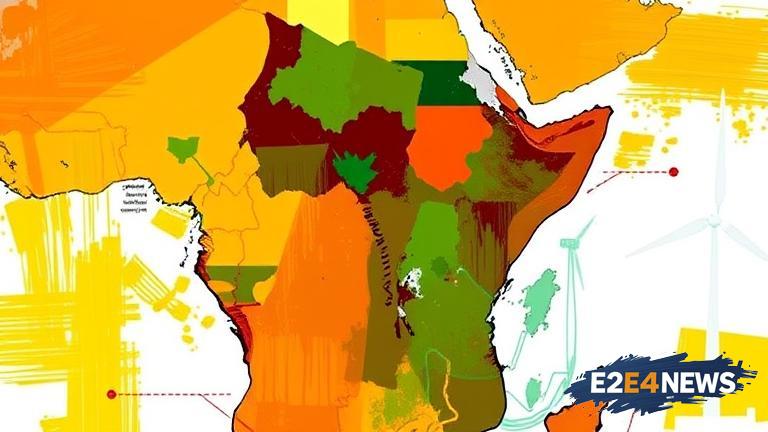The African continent is witnessing a significant shift towards renewable energy, driven by the need to address the pressing issues of energy access, climate change, and sustainable development. With a growing population and increasing economic activities, the demand for energy is on the rise, and renewable energy sources such as solar, wind, and hydroelectric power are becoming increasingly attractive. Many African countries are now investing heavily in renewable energy infrastructure, with a focus on solar and wind power. For instance, South Africa has set a target of generating 42% of its electricity from renewable sources by 2030, while Morocco aims to increase its renewable energy capacity to 52% by 2030. Egypt, on the other hand, has launched several large-scale renewable energy projects, including a 1.8 GW solar park in the Aswan province. The use of renewable energy is not only helping to reduce greenhouse gas emissions but also creating new job opportunities and stimulating local economies. In addition, renewable energy is providing energy access to millions of people in rural areas who were previously without electricity. The African Union has also launched several initiatives to promote the development of renewable energy on the continent, including the Africa Renewable Energy Initiative. The initiative aims to achieve at least 300 GW of renewable energy capacity by 2030, which is expected to reduce carbon emissions and create millions of new jobs. Furthermore, the International Renewable Energy Agency (IRENA) has also launched several programs to support the development of renewable energy in Africa, including the Africa Clean Energy Corridor initiative. The initiative aims to promote the development of renewable energy in Eastern Africa, with a focus on geothermal, wind, and solar power. The growth of renewable energy in Africa is also being driven by the declining cost of renewable energy technologies, making them more competitive with fossil fuels. Moreover, the use of renewable energy is also helping to improve energy security, reduce dependence on imported fuels, and mitigate the impact of climate change. However, despite the progress made, there are still several challenges that need to be addressed, including the lack of infrastructure, limited access to financing, and the need for policy and regulatory frameworks to support the development of renewable energy. To address these challenges, African countries need to develop and implement policies and regulations that support the development of renewable energy, including tax incentives, feed-in tariffs, and net metering laws. Additionally, there is a need for increased investment in renewable energy infrastructure, including transmission and distribution lines, as well as energy storage systems. The private sector also has a critical role to play in the development of renewable energy in Africa, including providing financing, technology, and expertise. In conclusion, the growth of renewable energy in Africa is a positive trend that has the potential to transform the continent’s energy landscape, reduce poverty, and promote sustainable development. With the right policies, regulations, and investments, Africa can become a leader in the global renewable energy market, creating new opportunities for economic growth, job creation, and environmental protection. The future of renewable energy in Africa looks bright, with many countries making significant progress in the development of solar, wind, and hydroelectric power. As the continent continues to grow and develop, the demand for energy will only increase, making it essential to invest in renewable energy sources that are sustainable, reliable, and environmentally friendly. By doing so, Africa can reduce its dependence on fossil fuels, mitigate the impact of climate change, and create a better future for its people.
